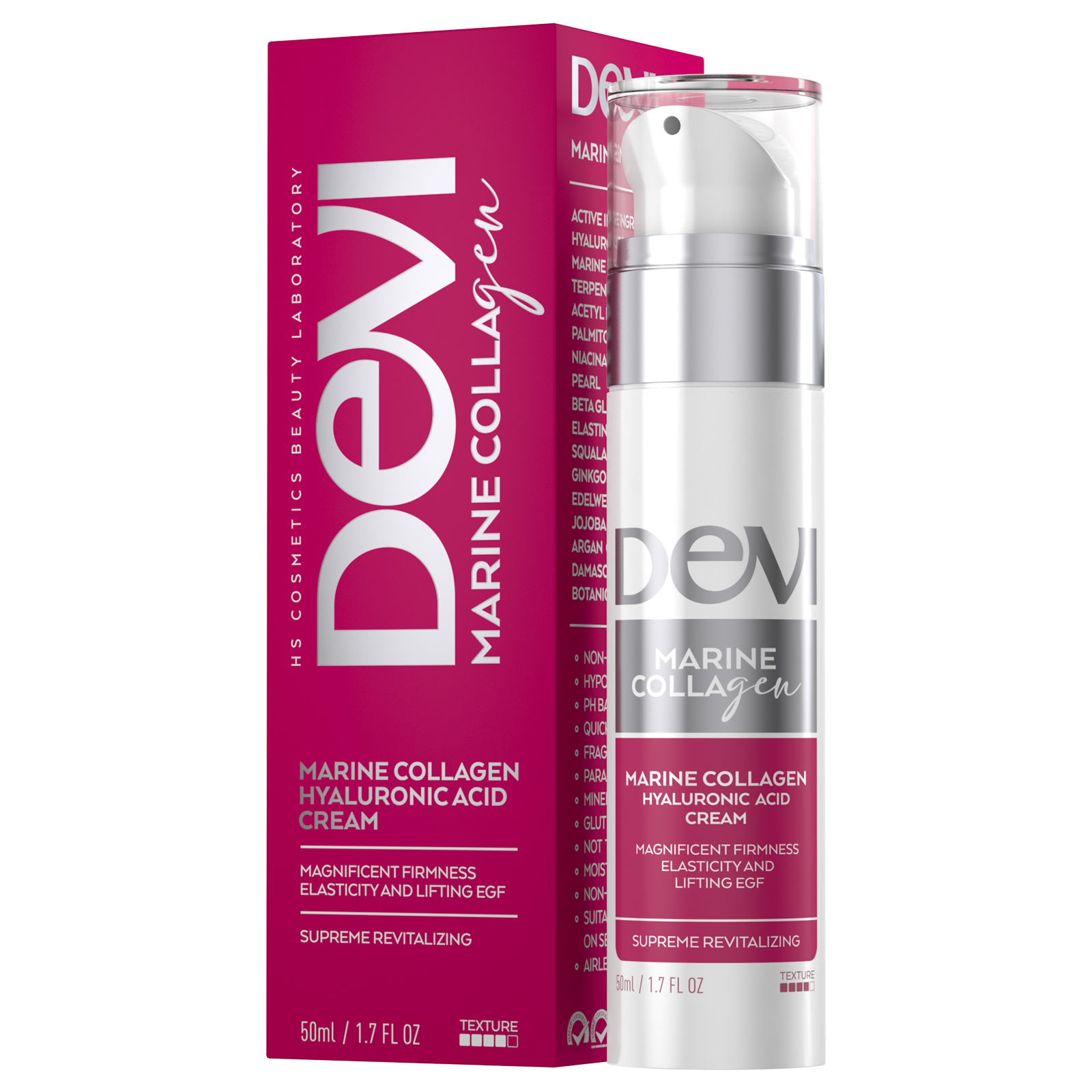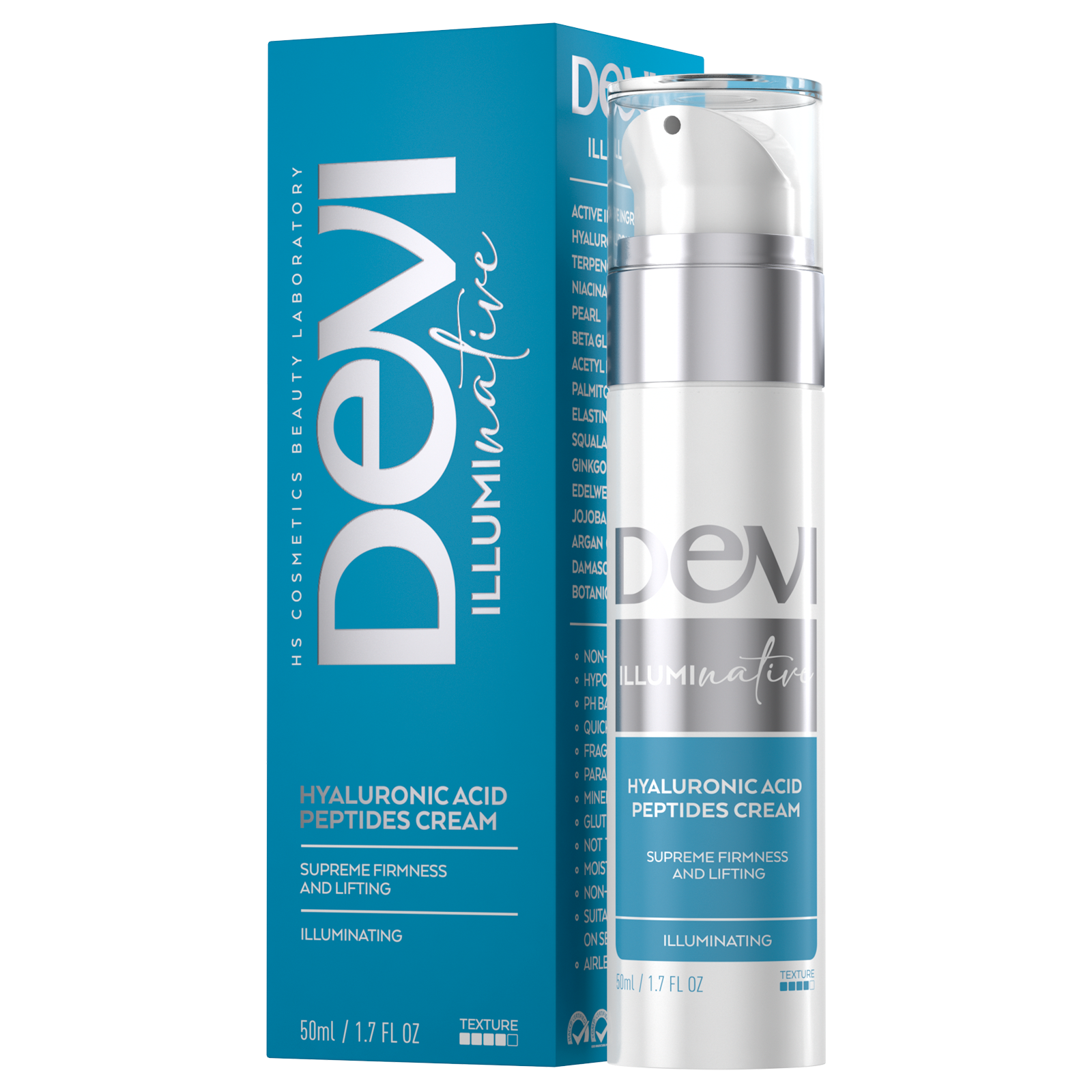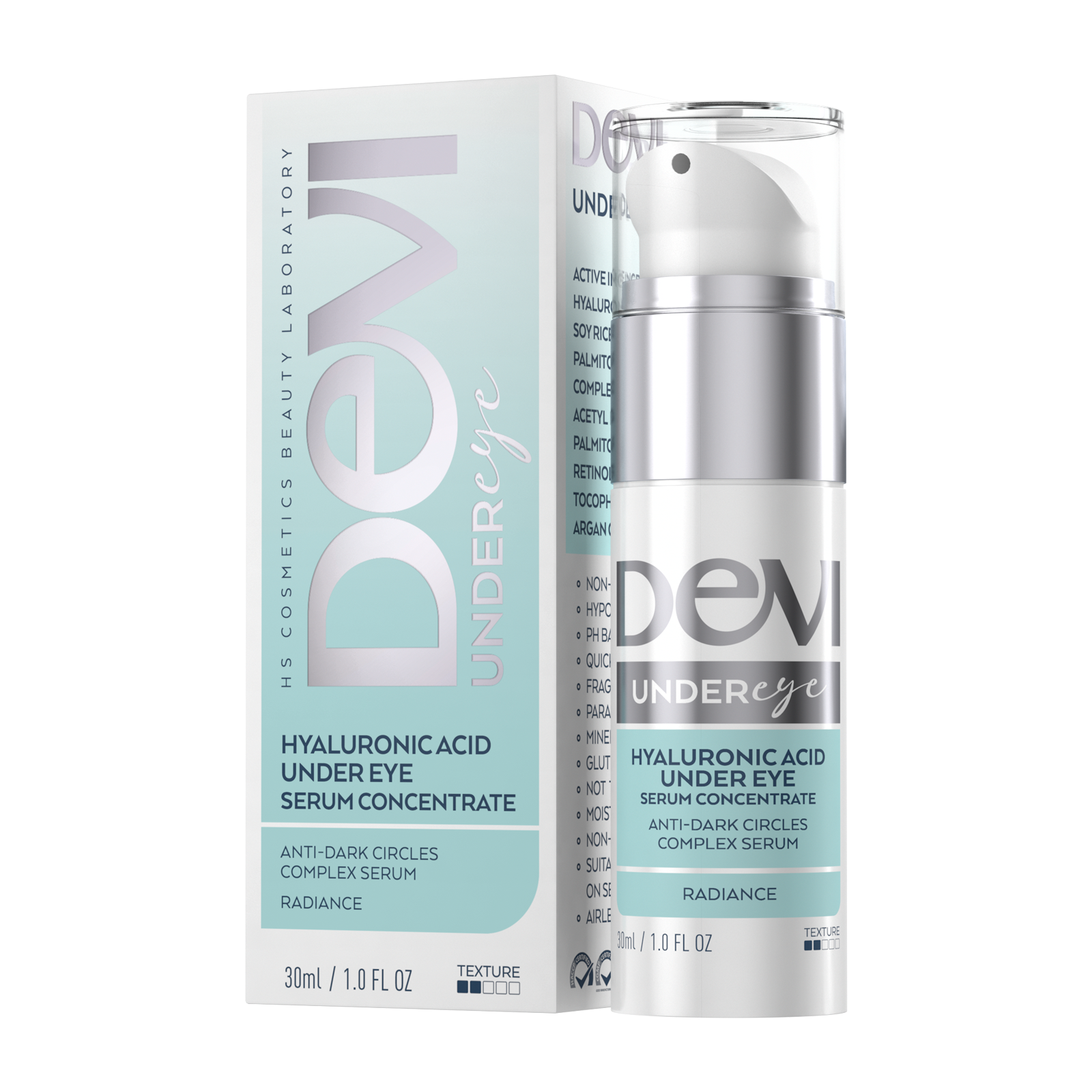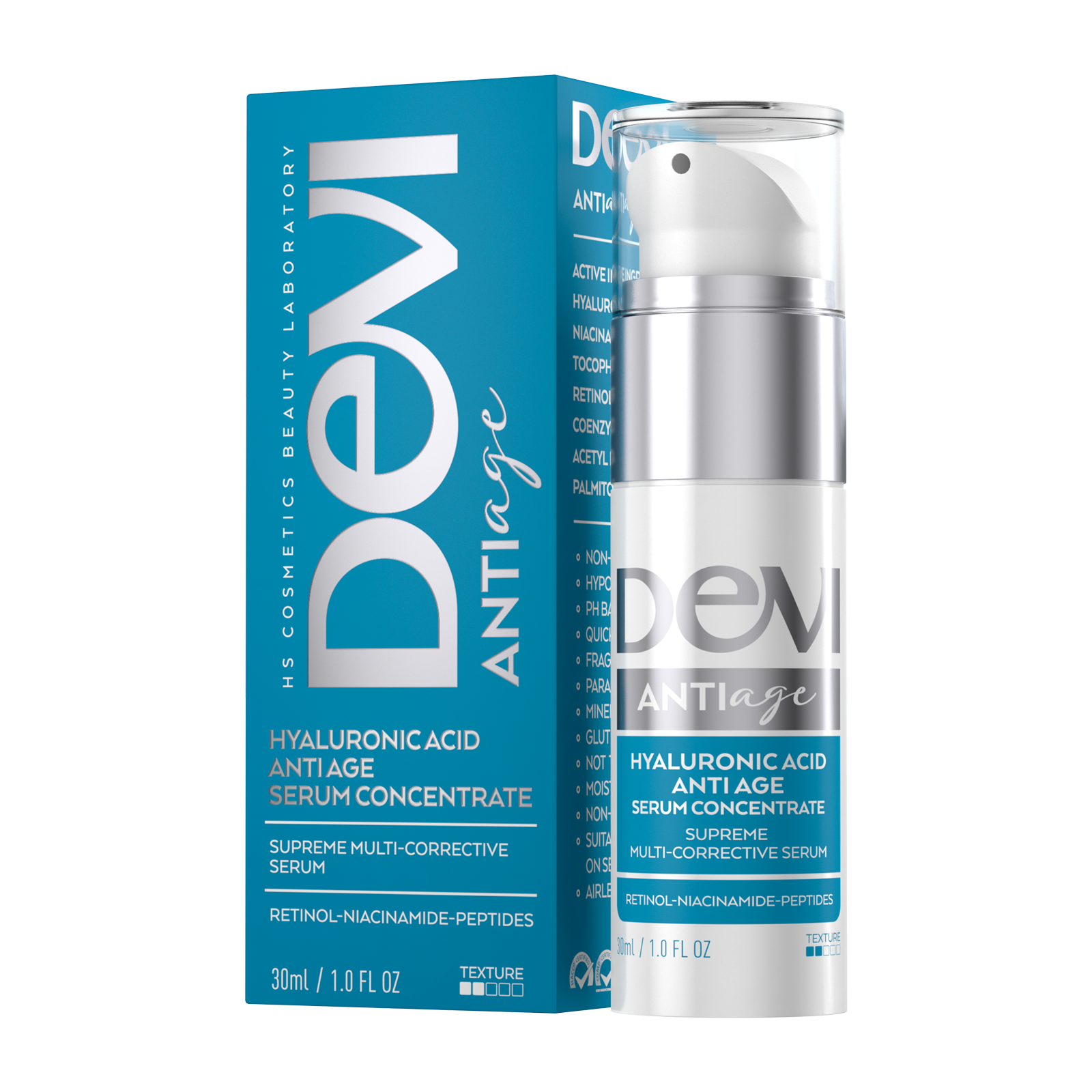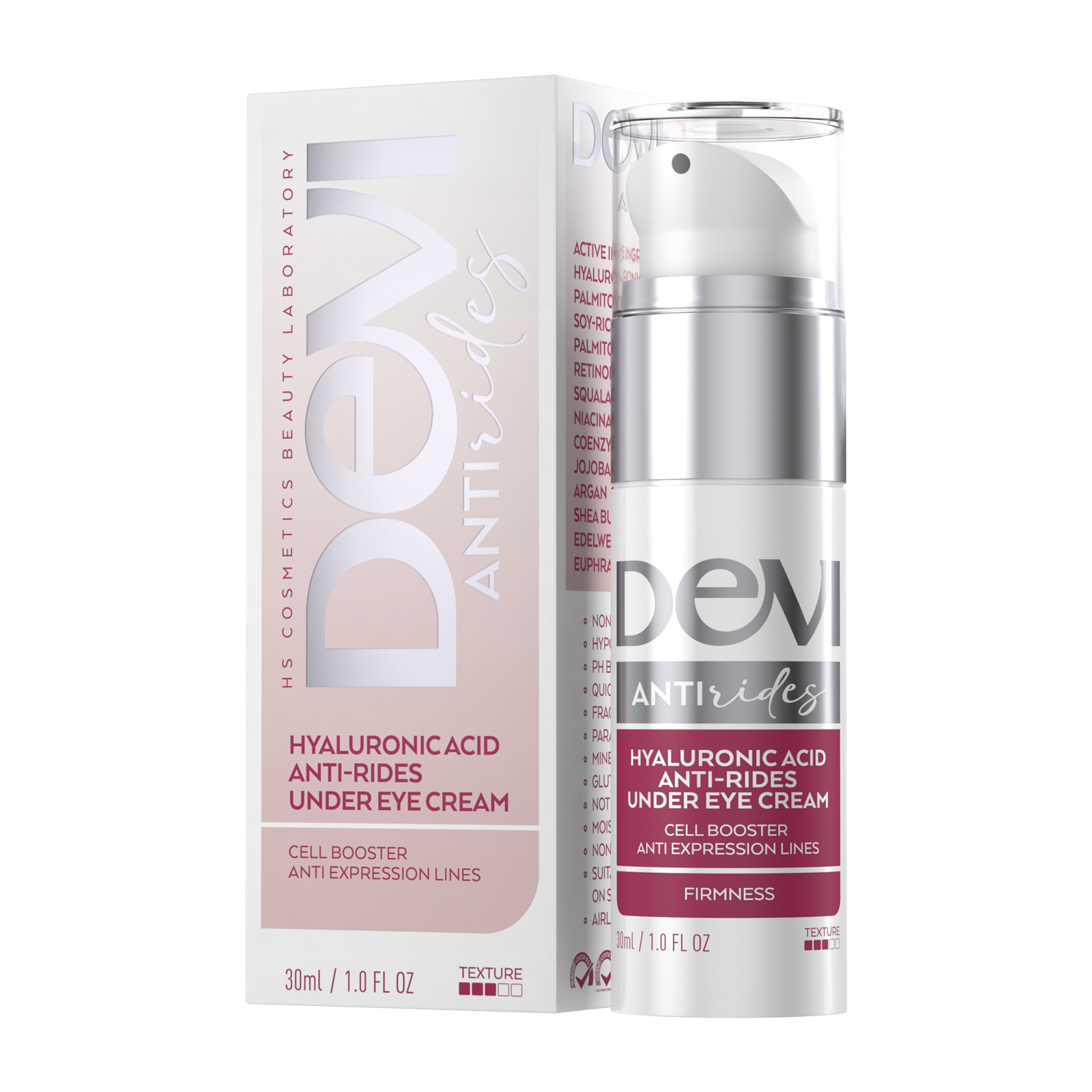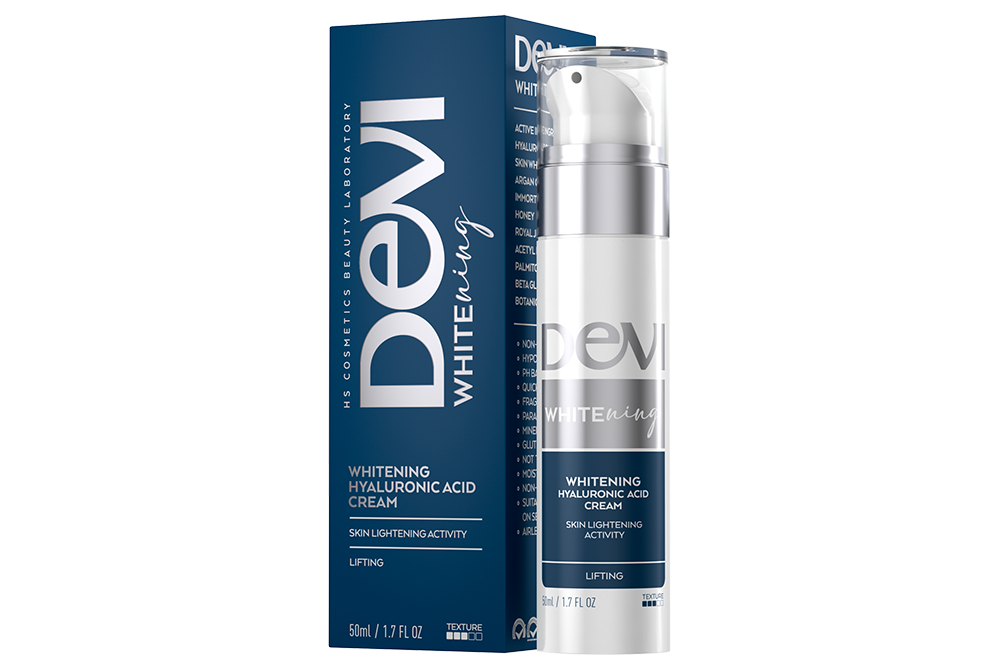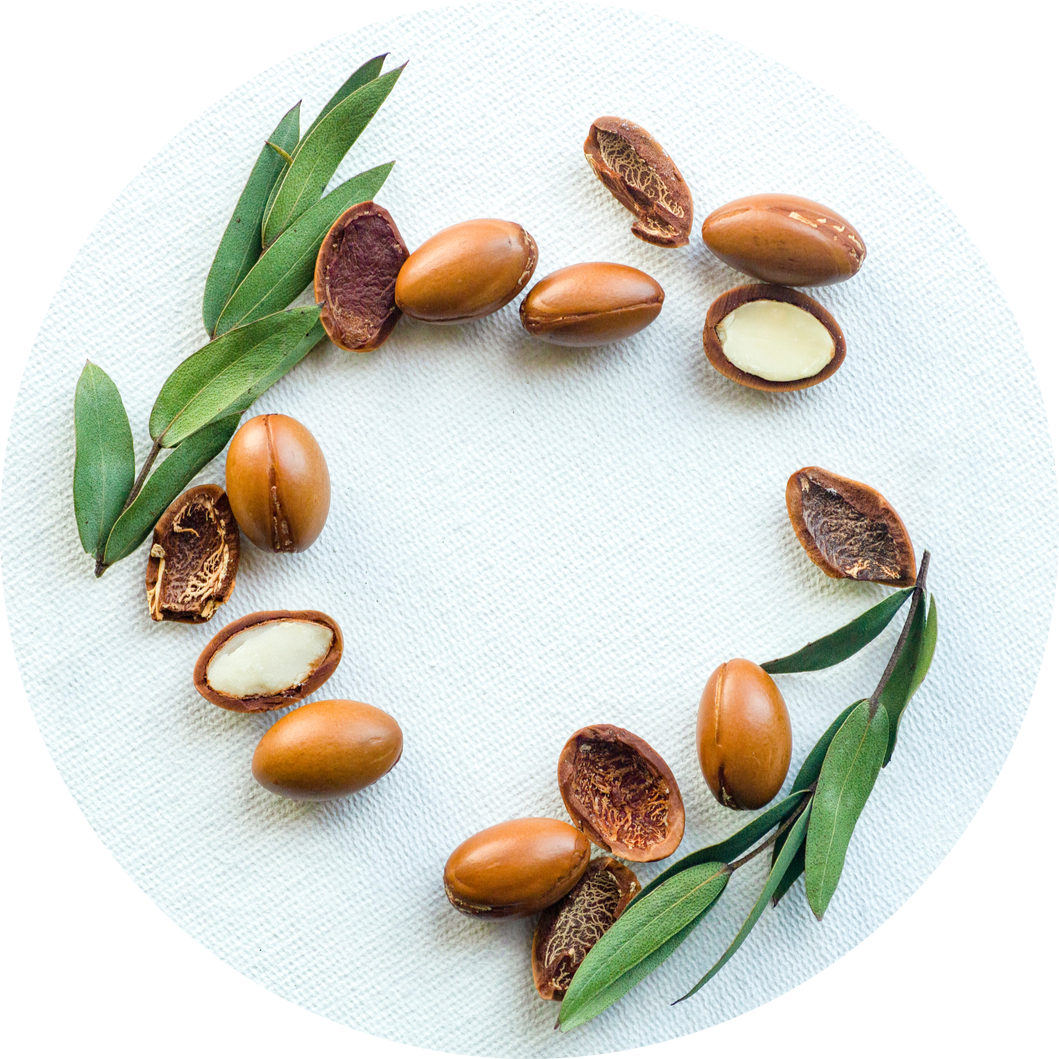(Argania spinosa)
Although argan seems completely exotic to us, this is a completely ordinary tree in Morocco where its fruit is particularly enjoyed by goats. When argan fruit ripens in June it looks like a dried olive and goats are ready to climb to the very top of the tree to reach it. At that time of year, they eat little else than argan’s bitter fruit. They swallow it whole – its thick crust, the fleshy part and the hard nut. And when the fruit passes through their digestive system, hard nuts remain behind the goats. The Berbers (Imazighens), natives of North Africa, repeat a production process that has been practised for thousands of years: they gather the fruit, crack the nuts and extract the precious core that is hidden in them. It could be said that this core is as precious as gold, because about 100 millilitres of oil squeezed from it costs about 100 dollars. No wonder, because in order to extract one litre of argan oil, it is necessary to use around one hundred kilograms of fruit in a long and painstaking process of extraction.
Argan oil is mass-produced in Morocco; the production of this oil is mostly done by women; small oil-producing cooperatives where goats can be seen grazing the trees have long been a tourist attraction. Apart from the fact that argan oil is great for skin care, in Morocco it is also used as a medicine and a food, in salads and cereals. Argan oil is used to make amlou, a spread used in Moroccan cuisine that consists of argan oil, almonds and honey. Barbers have used argan for centuries as timber, cattle fodder or firewood.
ARGAN OIL AS A MEDICINE
Argan has traditionally been used for a long time to treat rheumatism, heart problems and skin diseases, but also as sun protection. Today, we know that the ancient Berbers were completely right, because argan oil is rich in antioxidants that protect the skin from the effects of harmful radicals, they prevent burns, the appearance of sun spots and even melanoma. Argania spinosa, as this tree species is known scientifically, bears fruit rich in tocopherol (vitamin E), carotene, phenols (caffeic acid, oleuropein, vanillic acid, tyrosol, catechol, catechin…), squalene, fatty acids, of which 80 % are unsaturated…
A high content of tocopherols in argan oil explains its traditional use for the prevention of cardiovascular diseases, especially atherosclerosis, cancer and inflammation. Studies have shown that regular consumption of this oil lowers the LDL cholesterol and prevents cardiovascular risk. Unsaturated fatty acids and tocopherol in synergy have been proven to have an extremely strong chemoprotective effect, the ability to prevent hyperglycemia and insulin resistance, act against inflammation and reduce pain in rheumatic diseases, help with neurodegenerative diseases, including Alzheimer’s, eye diseases, cataracts and macular degeneration. And finally, its action is so strong that it destroys cancer cells, not only in the skin, but also in the breast and colon.
IDEAL FOR THE SKIN
However, argan has the most beneficial effect on the skin. Argan oil improves the skin’s barrier function and its ability to retain water, thus enabling proper hydration. The ability of argan oil to improve skin elasticity in postmenopausal women has been proven in studies. It softens and relaxes the skin and also helps to make better use of the healing properties of other ingredients such as allantoin. Its effect on second-degree burns has also been proven. Its anti-inflammatory effect, ability to hydrate, heal and strengthen the protective barrier of the skin make it an excellent choice for atopic dermatitis, rosacea, eczema and psoriasis.
Berber women’s clean and smooth skin is not accidental: argan oil has been proven to have antimicrobial action, which includes action against Cutibacterium acnes: it prevents the appearance of acne and helps to treat them. Its ability to regulate sebum secretion and prevent inflammation also contributes to this.
All this put together shows that argan has the power to protect the skin from pathogens, prevent its disorders including acne, regulate sebum secretion, give the skin elasticity, moisture, contribute to wound healing, smooth out scars, stretch marks, redness and inflammation, protect it from harmful UV rays, prevent hyperpigmentation, freckles and blemishes – in brief – it preserves the skin’s youth and health. That is why this liquid gold is a common and precious ingredient in top quality anti-ageing cosmetics.
CAN WE USE ARGAN OIL ON THE FACE AND ON A SLICE OF BREAD?
Argan oil is also present in two preparations of the Devi collection. Marine Collagen Intensive Cream has an abundance of valuable ingredients in addition to argan oil: hyaluronic acid, marine collagen, peptides, beta glucan, squalane, ginkgo extracts, edelweiss, damask rose and other herbs; in this cream argan oil contributes to skin revitalization, hydration and immunity, prevents its ageing and the appearance of wrinkles and blemishes. The synergistic effect of these ingredients stimulates the synthesis of collagen, which results in supple, elastic and youthful skin.
Illuminative Cream is rich in argan oil, peptides, elastin and beta glucan, which penetrate deep into the skin and stimulate both the immune system of cells and their regeneration. Hydroxyproline, an amino acid necessary for collagen synthesis, contributes to skin elasticity and its rejuvenation. Illuminative Cream is ideal for skin prone to wrinkles, redness, freckles and blemishes, it brightens the complexion, prevents the appearance of dark under-eye circles, reduces the appearance of wrinkles and gives a youthful and velvety look to the skin.
Both creams are suitable for all skin types and are ideal in combination with serums from the Devi collection, Botomix Peptide Serum for example.
And finally, while applying creams containing argan oil to the face, we can also make the healthy Moroccan amlou spread. To make it, we need about 200 grams of almonds, 180 ml of argan oil, four or five tablespoons of slightly warmed honey and a pinch of salt. Almonds should first be baked in the oven, then fine-ground in a food processor until they turn into a smooth paste. Argan oil should then be gradually folded into the mixture, to which honey and a little salt should be added. Amlou is traditionally served in a shallow bowl, it can be used as a sauce or spread. No matter how we use argan – whether we eat it or use it on our skin – one thing is certain – our good health is guaranteed!
